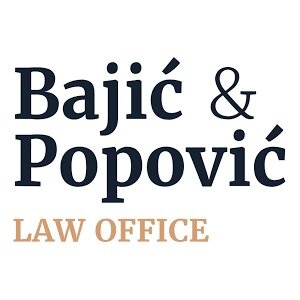Best Job Discrimination Lawyers in Serbia
Share your needs with us, get contacted by law firms.
Free. Takes 2 min.
Or refine your search by selecting a city:
List of the best lawyers in Serbia
Legal guides written by Business Law office - Advokatska Kancelarija:
- Why Invest In Serbia
About Job Discrimination Law in Serbia
Job discrimination in Serbia is governed by several national and international legal frameworks aimed at promoting equality and protecting against discrimination in the workplace. The laws prohibit discrimination based on gender, race, ethnicity, nationality, religion, age, disability, and other personal characteristics. The Constitution of the Republic of Serbia, the Labor Law, and the Law on Prohibition of Discrimination are key legal instruments that provide for equal treatment and opportunities in employment. These laws aim to ensure fairness in hiring, promotions, salary, and other employment conditions.
Why You May Need a Lawyer
There are various common scenarios where individuals in Serbia might require the assistance of a lawyer to address job discrimination issues. These include: facing unfair treatment due to personal traits, being denied a promotion despite qualifications, experiencing harassment in the workplace, encountering workplace policies that disadvantage a particular group, or needing advice on filing a complaint or lawsuit. A lawyer specializing in discrimination law can help navigate complex legal requirements, gather necessary evidence, and represent individuals in court or mediation.
Local Laws Overview
Serbia's legal framework for addressing job discrimination is comprehensive. The Labor Law outlines fundamental rights and responsibilities, emphasizing anti-discrimination in employment. The Law on Prohibition of Discrimination explicitly prohibits direct and indirect discrimination in employment. Notably, the Commissioner for the Protection of Equality is an independent body responsible for overseeing the enforcement of these anti-discrimination laws. Individuals experiencing discrimination have the right to file petitions, seek financial indemnities, and receive legal protection through these mechanisms.
Frequently Asked Questions
What constitutes job discrimination in Serbia?
Job discrimination refers to unfair or unequal treatment in employment based on protected characteristics, such as gender, race, ethnicity, or disability, contrary to Serbia's anti-discrimination laws.
What are some examples of job discrimination?
Examples include not hiring or promoting someone due to their race, offering unequal pay for the same work, creating a hostile work environment through harassment, or implementing policies that disproportionately affect certain groups.
How can I prove job discrimination occurred?
To prove discrimination, gather evidence such as emails, performance evaluations, witness testimonies, or documentation showing a pattern of unequal treatment compared to others in similar roles.
What should I do if I believe I'm experiencing job discrimination?
Document the discriminatory behavior, try resolving the issue internally if possible, and consult with a lawyer to explore legal options if necessary.
Can I file a complaint if I am not currently employed at the company?
Yes, former employees can file a complaint if the discrimination occurred during their employment or related to the termination process.
How long do I have to file a claim regarding job discrimination?
The time limit for filing a claim may vary, so it is crucial to consult with a lawyer promptly to ensure no deadlines are missed.
What kind of compensation can I receive if I win a discrimination case?
Compensation may include back pay, reinstatement, damages for emotional distress, and sometimes punitive damages, depending on the case specifics.
Do employers have any defenses against discrimination claims?
Employers may argue bona fide occupational qualifications, non-discriminatory reasons for their actions, or compliance with certain seniority or merit systems as defenses.
Is mediation an option in job discrimination cases?
Mediation can be a useful tool for resolving disputes amicably without resorting to litigation, and it may be a preferred initial step in some cases.
Can job discrimination claims affect my future employment prospects?
Discrimination laws protect individuals from retaliation for filing claims, meaning future employers generally should not be influenced by your pursuit of justice in such matters.
Additional Resources
Those seeking further information and support regarding job discrimination issues in Serbia may find the following resources helpful:
- The Commissioner for the Protection of Equality
- The Serbian Ministry of Labor, Employment, Veteran and Social Policy
- Legal aid clinics and non-governmental organizations specializing in labor rights
- Workshops and seminars on workers' rights and anti-discrimination laws
Next Steps
If you find yourself facing job discrimination and need legal assistance, consider taking these steps:
- Document all instances of the discriminatory behavior.
- Consult with a lawyer specializing in labor and discrimination law to evaluate your case.
- Consider filing a complaint with the Commissioner for the Protection of Equality.
- Explore mediation or settlement opportunities where suitable.
- If necessary, prepare to take legal action in court, guided by professional legal advice.
Lawzana helps you find the best lawyers and law firms in Serbia through a curated and pre-screened list of qualified legal professionals. Our platform offers rankings and detailed profiles of attorneys and law firms, allowing you to compare based on practice areas, including Job Discrimination, experience, and client feedback.
Each profile includes a description of the firm's areas of practice, client reviews, team members and partners, year of establishment, spoken languages, office locations, contact information, social media presence, and any published articles or resources. Most firms on our platform speak English and are experienced in both local and international legal matters.
Get a quote from top-rated law firms in Serbia — quickly, securely, and without unnecessary hassle.
Disclaimer:
The information provided on this page is for general informational purposes only and does not constitute legal advice. While we strive to ensure the accuracy and relevance of the content, legal information may change over time, and interpretations of the law can vary. You should always consult with a qualified legal professional for advice specific to your situation.
We disclaim all liability for actions taken or not taken based on the content of this page. If you believe any information is incorrect or outdated, please contact us, and we will review and update it where appropriate.
Browse job discrimination law firms by city in Serbia
Refine your search by selecting a city.

















